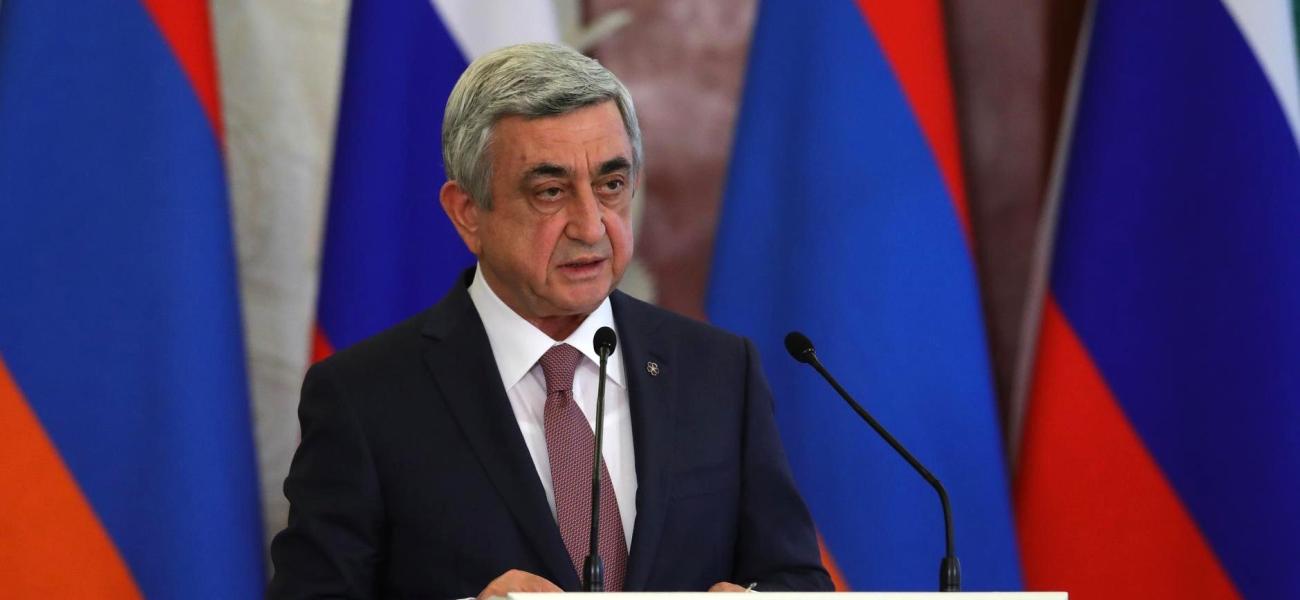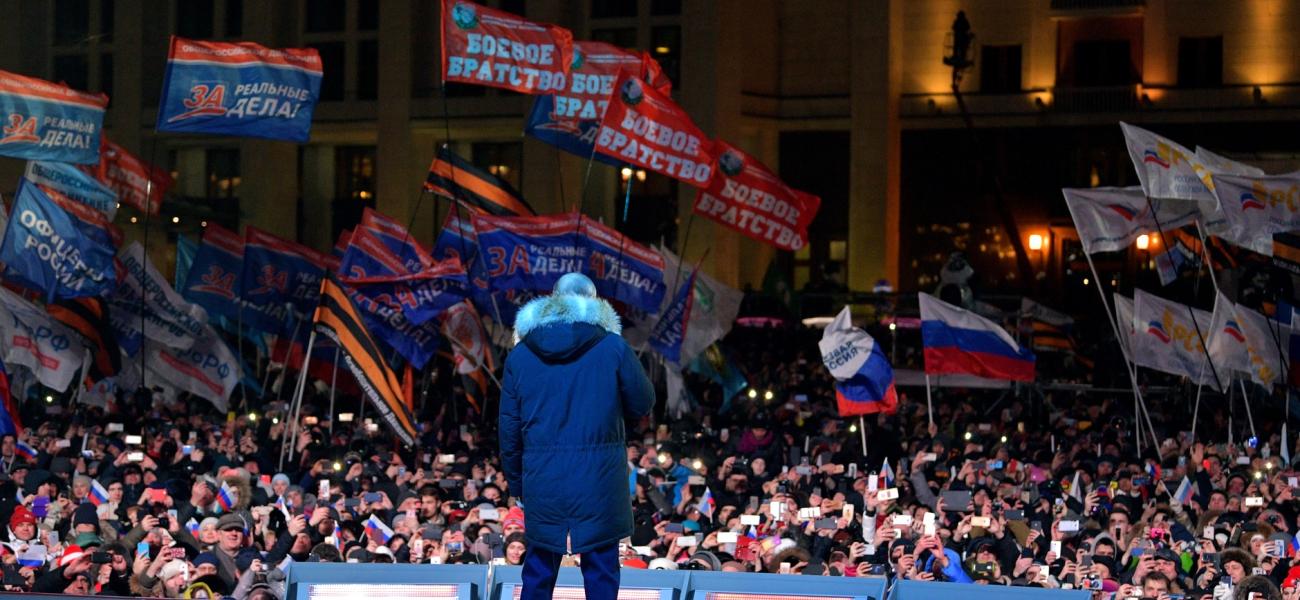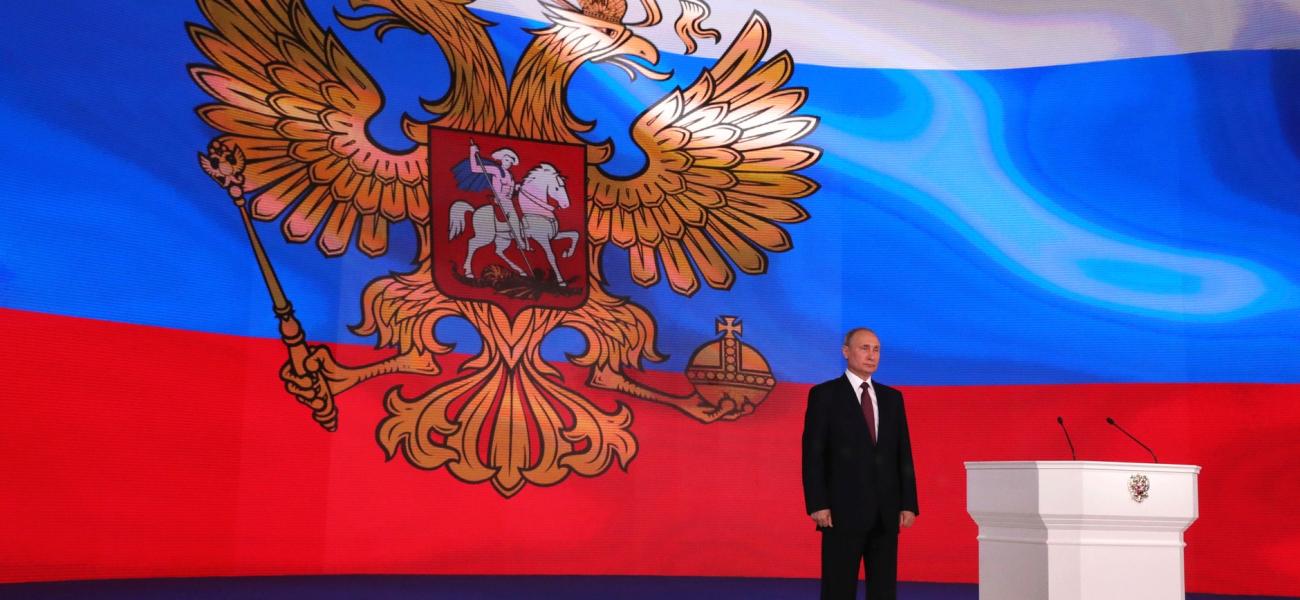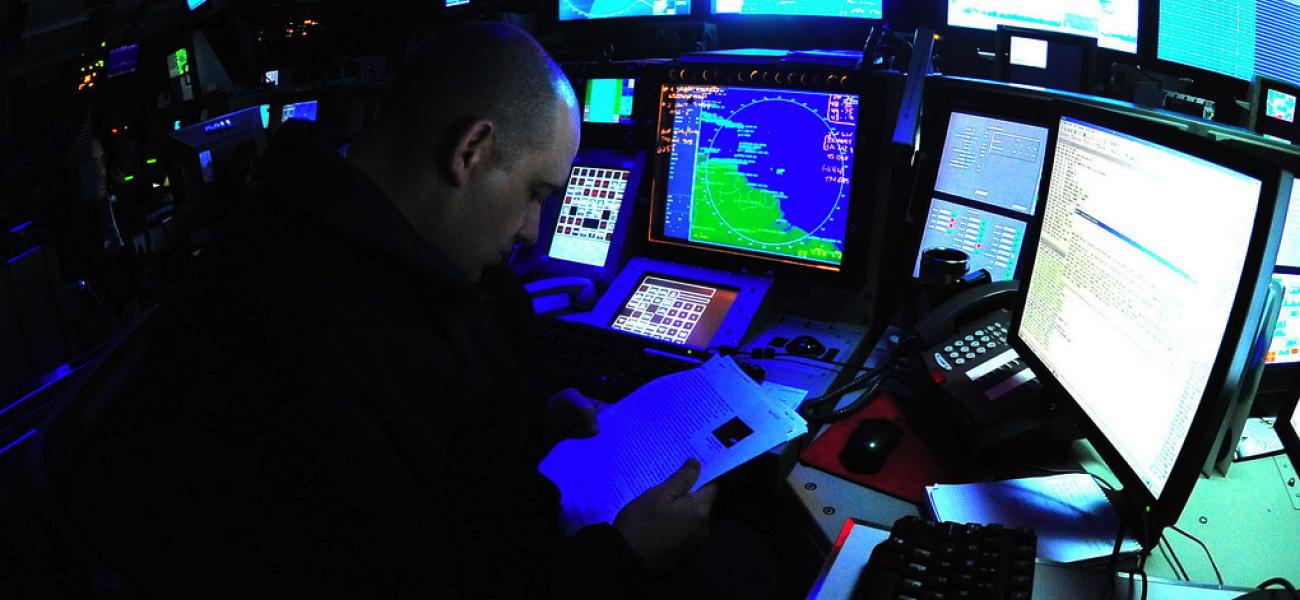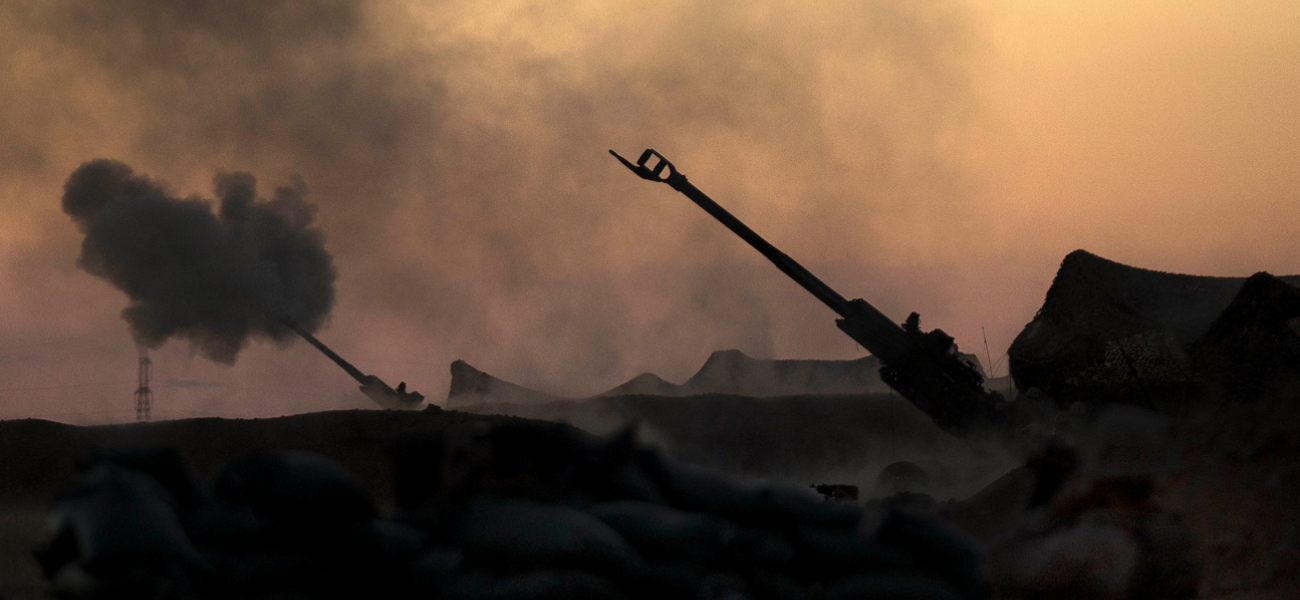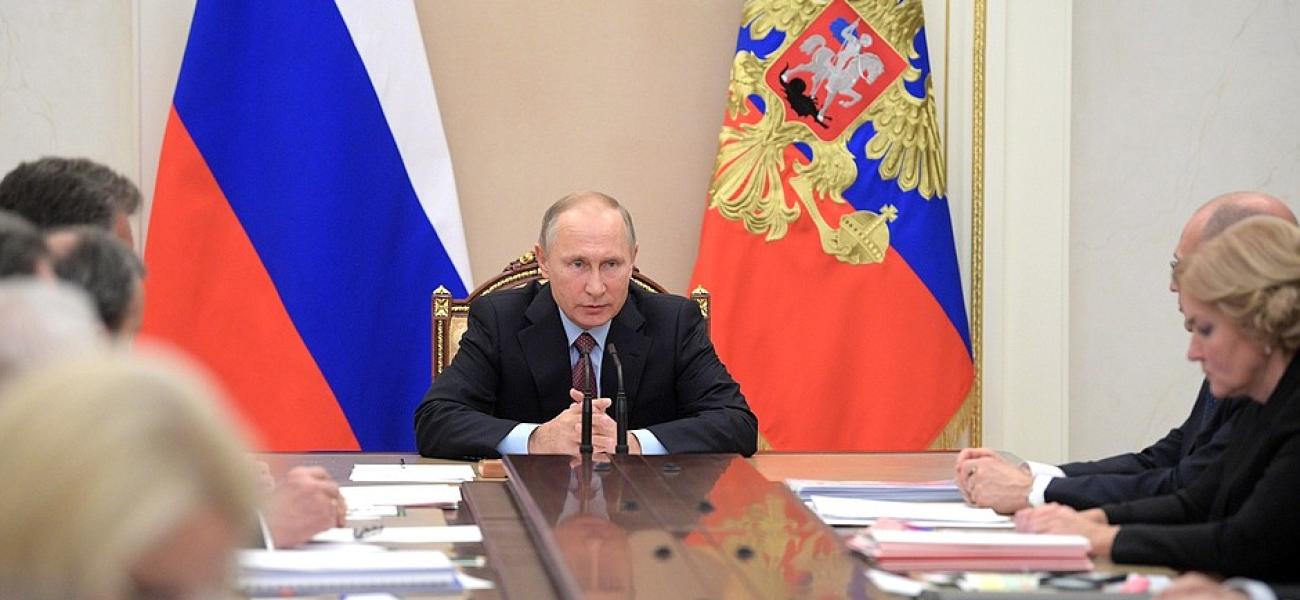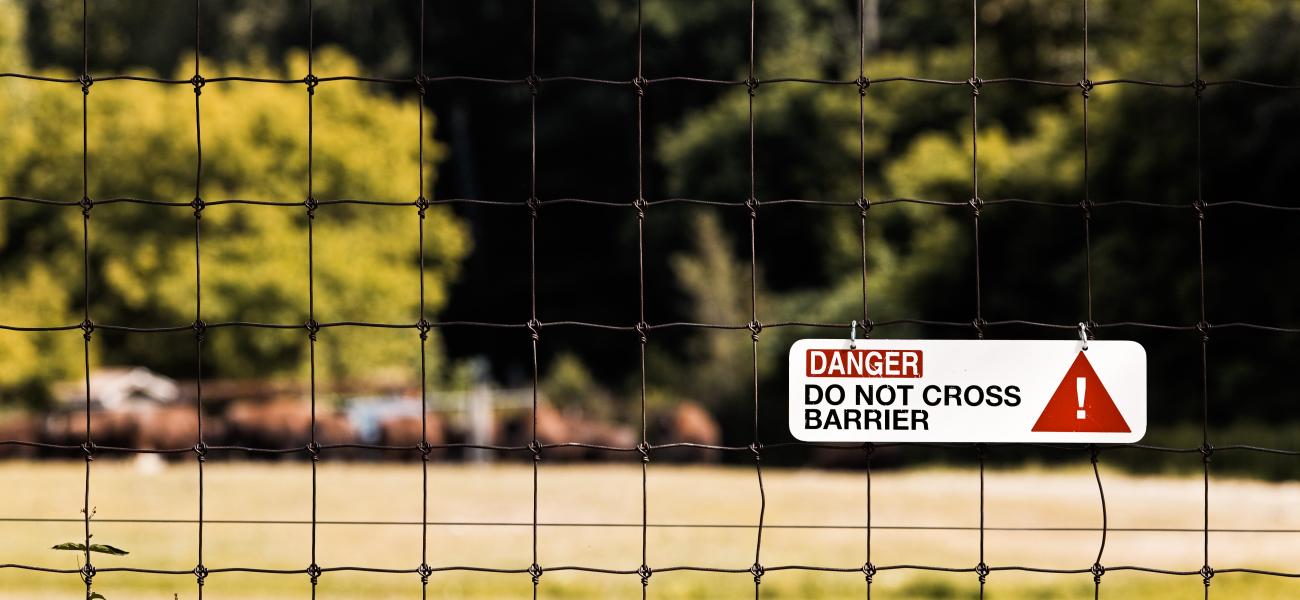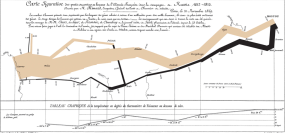The resignation of Armenia’s Prime Minister Serzh Sargsyan after more than a week of mass protests in Russia’s backyard begs the question: Why has Moscow not intervened so far? The fist-pumping demonstrators bring to mind “color revolutions” in the post-Soviet neighborhood that the Kremlin seems to abhor, like the ones in Georgia and Ukraine. But even genuine color revolutions (which Armenia has not yet seen—more on that below) are not enough by themselves to prompt Russia to stage either a covert or overt intervention. As I have argued before, for Moscow to intervene in one of its Soviet-era satellites at least two conditions need to be present: First, Vladimir Putin has to see an acute threat to Russia’s vital national interests, such as the potential expansion of antagonistic Western-led alliances too close to Russia’s borders; second, the chances for defending or advancing its interests through the use of force have to be relatively high.
The first condition is absent in Armenia because the dominant, pro-Russian wing of the country’s ruling elite continues to retain power. Sargsyan’s Russia-friendly Republican Party and its Dashnak allies control a majority in parliament, which means they can nominate and approve the next prime minister. (This was made possible under the current constitution, which Sargsyan successfully pushed to change in 2015, when he was president, in an ill-thought-out plan to retain power after his second and final presidential term expired this April.) If protest leader Nikol Pashinyan succeeds in ending the party of power’s control of parliament through protests or early elections, then, yes, that would be a revolution. For Russia to intervene, however, Pashinyan would not only have to oust the current party of power, he would also have to show a determination to move Armenia westward, into the EU and NATO. So far, Pashinyan has showed no such intentions, which should come as no surprise: Whatever his personal views, he realizes NATO is in no mood to accept more post-Soviet states in the short to medium term, and Armenia, therefore, has no viable alternative but Russia as its guarantor of security while it faces two hostile bordering states, Azerbaijan and Turkey. That pro-Russian elites have so far remained in control of Armenia in spite of Sargsyan’s resignation explains why Vladimir Putin—who is said to have a much cooler personal relationship with Sargsyan than with ex-President Robert Kocharyan—has not condemned the events in Armenia. Moreover, representatives of the Russian government and parliament vowed support for Armenia and some of them even welcomed the change, for example deputy speaker of the State Duma Igor Lebedev.
Armenia’s situation stands in stark contrast to cases when former Soviet republics have come under the rule of leaders intent on bringing them into blocs that Russia views as unfriendly competitors, such as NATO and the EU. When Russia intervened in Georgia in 2008 it did so because Georgian President Mikheil Saakashvili, with strong backing from George W. Bush, nearly succeeded in obtaining a Membership Action Plan from NATO. By that time, Georgia had been growing both friendlier with the West and more democratic for over four years. Yet Putin did not intervene until he saw the Bush administration come close to winning a MAP for Georgia and Ukraine at NATO’s Bucharest summit, which the Russian leader attended personally to head off the efforts. Although the summit ultimately did not offer the MAPs, thanks in part to opposition from German Chancellor Angela Merkel, its final communique did say that “NATO welcomes Ukraine’s and Georgia’s Euro-Atlantic aspirations for membership in NATO. We agreed today that these countries will become members of NATO.” That meant that any of the following summits could give Georgia and Ukraine MAPs, which Putin would have seen as an unacceptable threat to Russia’s interests. At the time, Putin probably thought he could not afford a double intervention into both Georgia and Ukraine. He picked Georgia, as least in part, because Saakashvili gave him a good pretext by taking Russia’s bait and launching a ground assault to establish control over breakaway South Ossetia. Ukraine may have been next, but in 2010 its then-leader Viktor Yushchenko lost the presidency to the more Moscow-friendly Viktor Yanukovych, who made it clear he would not seek membership in NATO. Therefore, the need to intervene in Ukraine subsided until 2014 when a pro-Western faction of Ukraine’s ruling elite came to power again amid expectations it would take the country into the EU and NATO in the wake of the Euromaidan revolution.
It is important to note that Russia does not intervene militarily in its post-Soviet neighbors’ affairs just because they have undergone a revolution and/or become more democratic or because their leaders want to build friendlier relations with Russia’s competitors. A threat to Moscow’s vital interests is the key. Take Armenia: It is ranked as more democratic than Russia and it also has friendly relations with the West. It has recently signed an EU Association Agreement (though it was watered down because of Russia) and it participates in NATO’s Partnership for Peace program. It also has troops in the NATO-led campaign in Afghanistan and even had troops in the U.S.-led campaign in Iraq (withdrawn in 2008). Yet Russia has not intervened in Armenia—because, as stated above, its leadership has not displayed any ambition to pursue NATO membership. Likewise, Kyrgyzstan has consistently been ranked more democratic than Putin’s Russia and it even hosted a U.S. base (which Russia reportedly pressured Bishkek to close down). Yet Russia chose not to intervene during Kyrgyzstan’s revolutions of 2005 and 2010, despite then-President Kurmanbek Bakiyev’s pleas for such intervention in 2010. Again, the reason is that the victorious opposition did not espouse a desire to remove the country from Russia’s zone of influence to join or ally with a hostile bloc.
The second condition for Russia to intervene is that the overall situation in question has to be conducive to the use of force. In other words, Russian leaders must be sure they will prevail in a military confrontation or at least ensure a stalemate that would constrain the targeted state’s ability to maintain activities Russia sees as seriously undermining its vital interests. That condition is at least partially present in the case of Armenia. It is true that Russia is already heavily involved in Syria and Ukraine, and recent polls show that Russians aren’t eager for further military engagement absent any clear threat to them or Russian-speaking minorities abroad. However, Russia has a large military base in Armenia, so if Moscow were to decide to use force there, it could theoretically do so more quickly than in Ukraine or Georgia. But the consequences and costs of such an intervention could outweigh the benefits, especially in the absence of a dramatic change in Armenia’s integration preferences, such as its “escape” to NATO. Any attempt to take control of Armenia, especially in the absence of a credible threat to Russia’s vital interests, would seriously undermine Moscow’s efforts to keep other post-Soviet republics in its various international integration projects because it would demonstrate that even membership in Russian-led coalitions—like the Collective Security Treaty Organization and Eurasian Economic Union—does not preclude losses of territory or independence to Moscow. These republics would then probably start looking around for guarantors and patrons other than Russia, forcing Moscow to expend resources on dealing with the consequences.
So if not Armenia, then who (if anyone) could be next?
If Armenia remains a Russian ally, as it likely will, then Moldova, which reluctantly plays host to a large Russian military contingent in its separatist province of Trans-Dniester, could be the next target of Russian intervention—if its efforts to pursue integration with the EU and deeper cooperation with NATO progress to what Putin sees as a point of no return. There’s also a chance that Putin may choose to escalate in Ukraine or Georgia if these two countries manage to somehow convince NATO to grant them MAPs. However, the prospect of such NATO action plans is unlikely for either of the two, and for Moldova as well. Therefore, the probability of Russian intervention in these countries is low, though not negligible.
Simon Saradzhyan is the director of Russia Matters. The views expressed here are his own.
Photo: Serzh Sargsyan during a visit to Moscow as president, March 2017. Courtesy of the Kremlin.
The opinions expressed in this blog post are solely those of the author.

